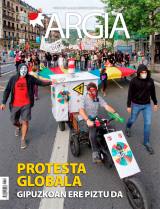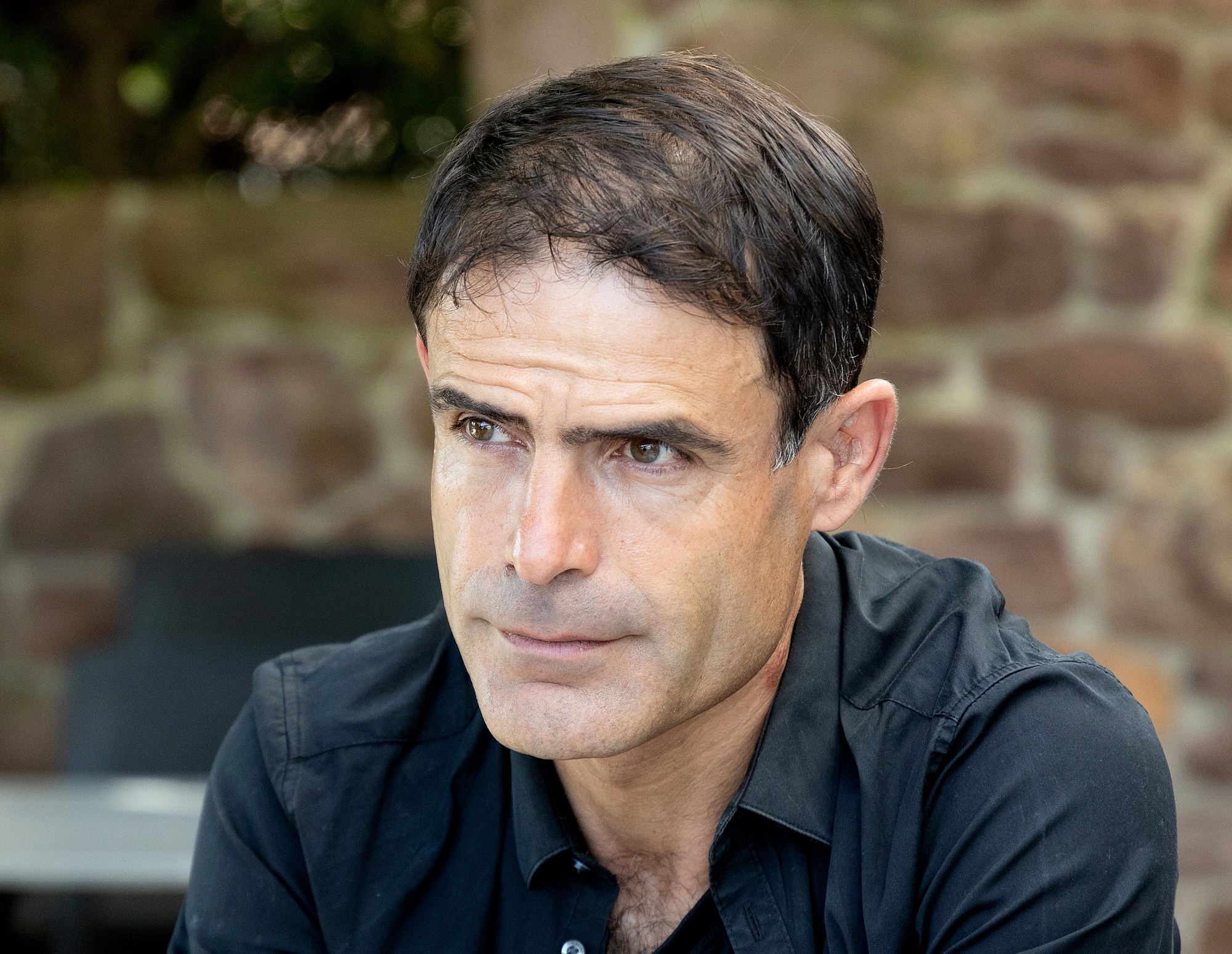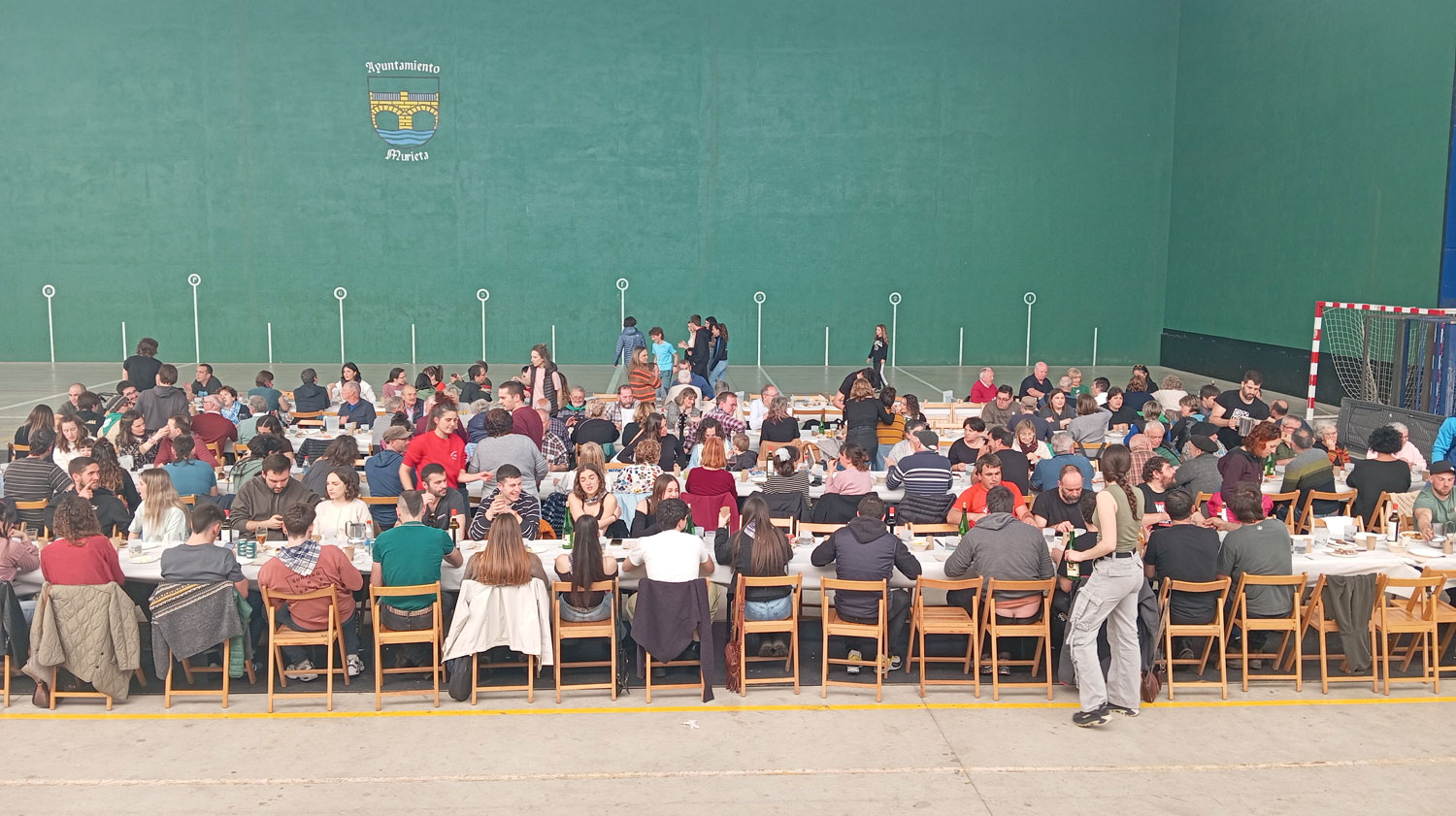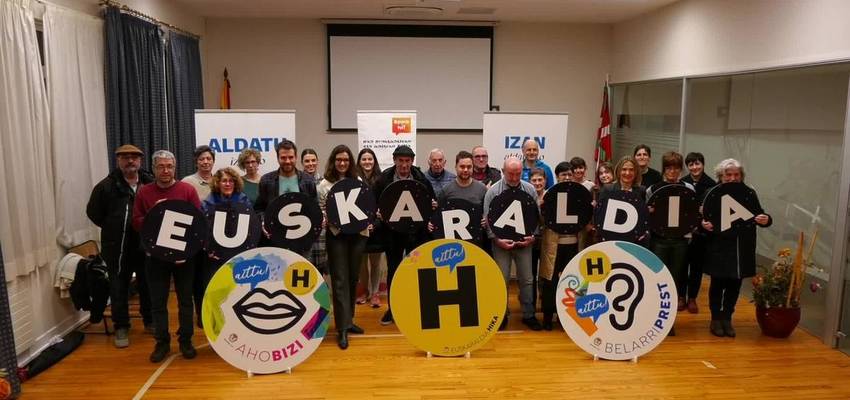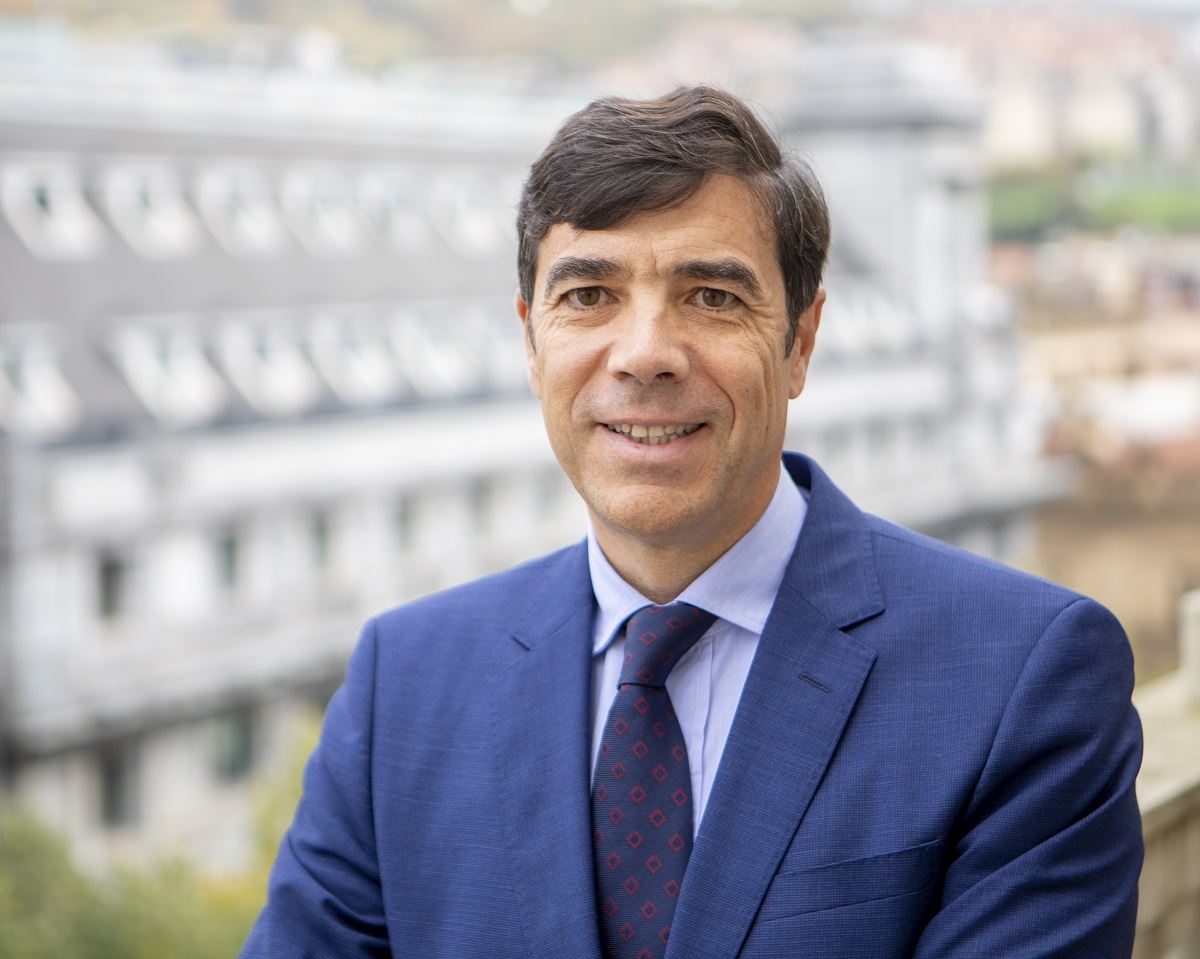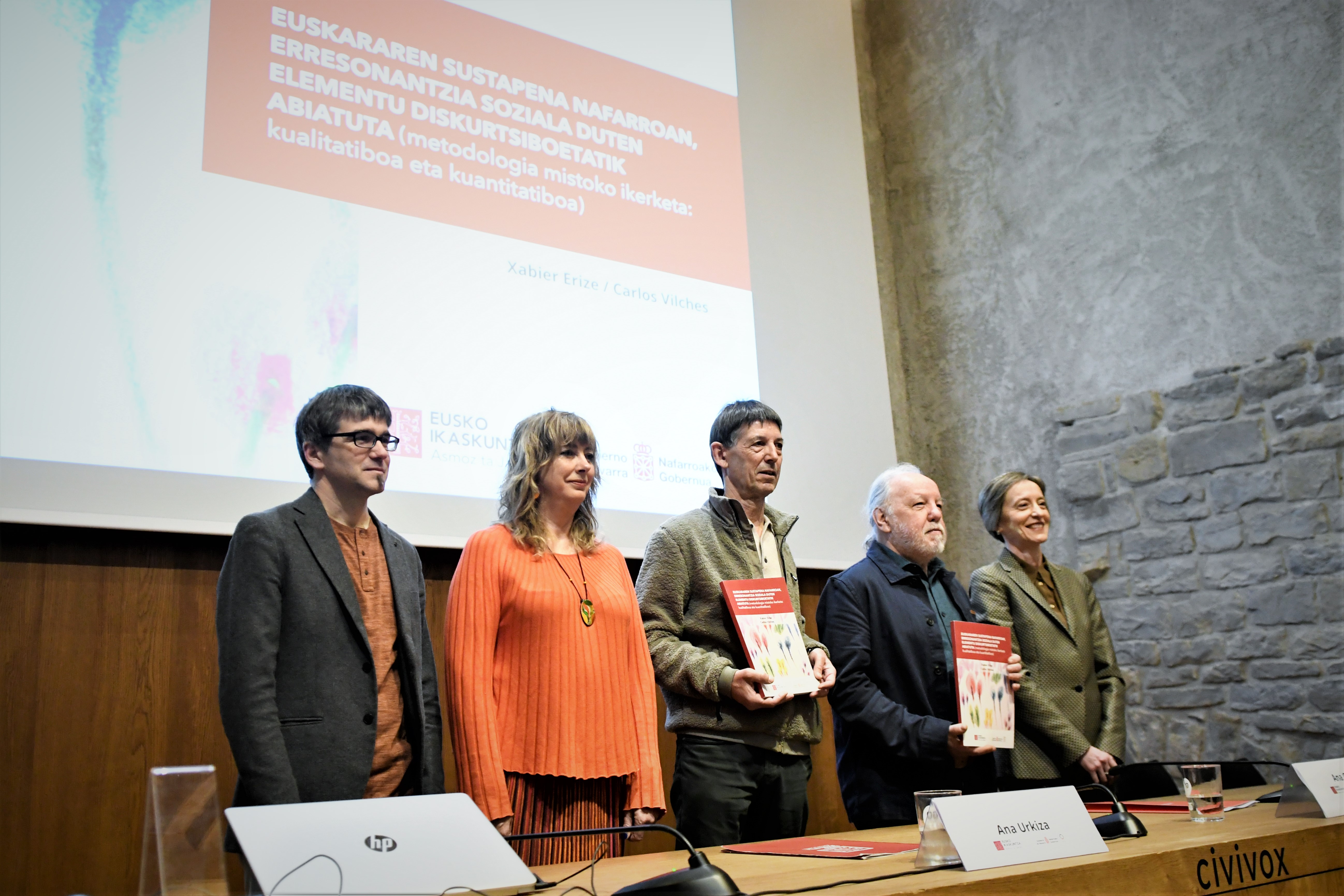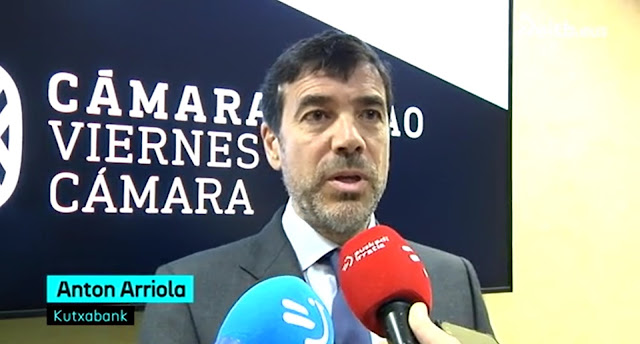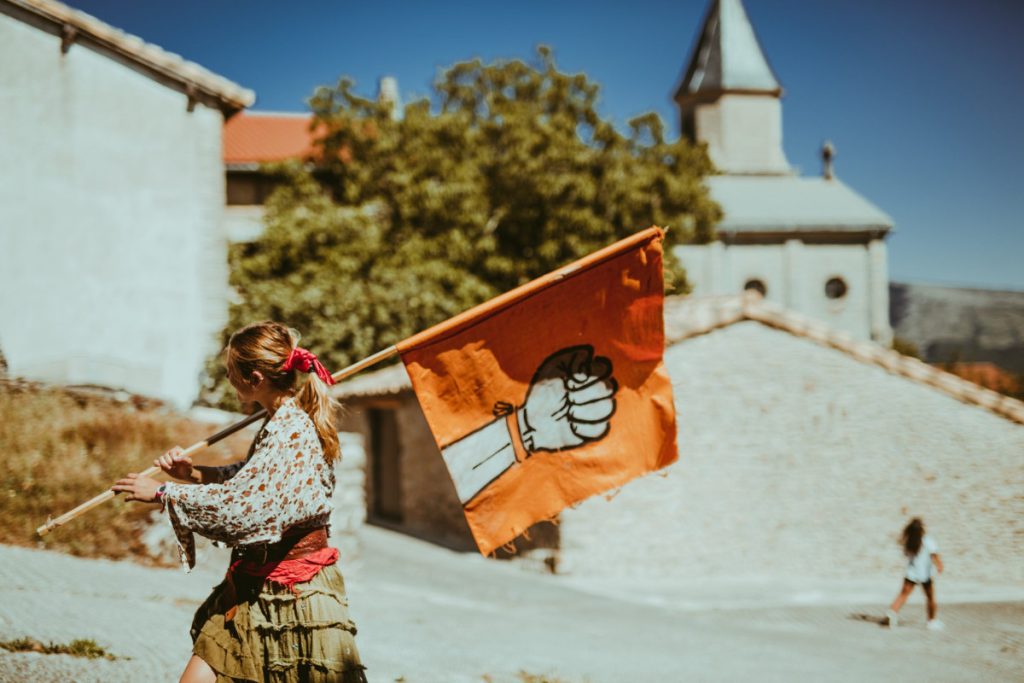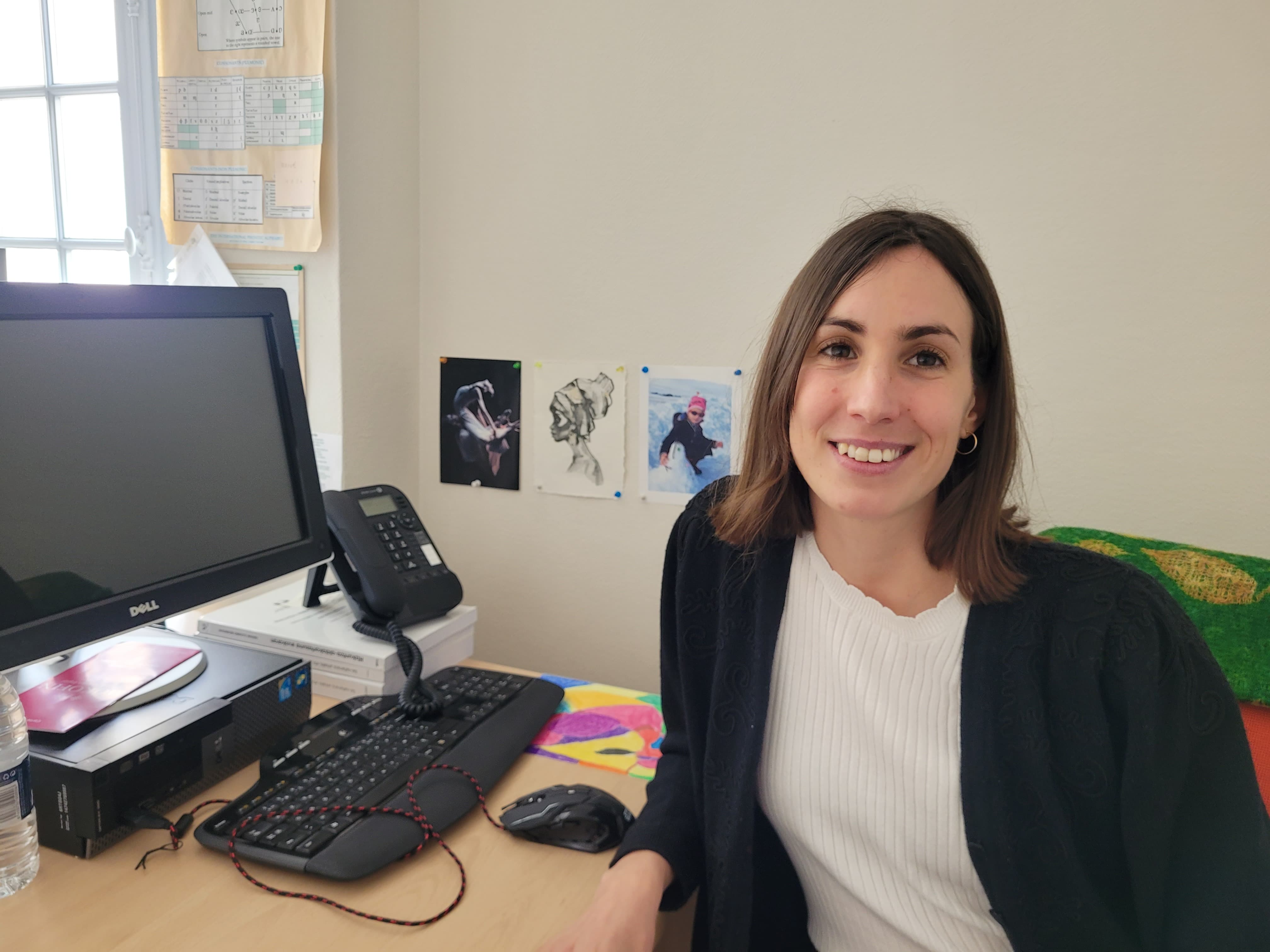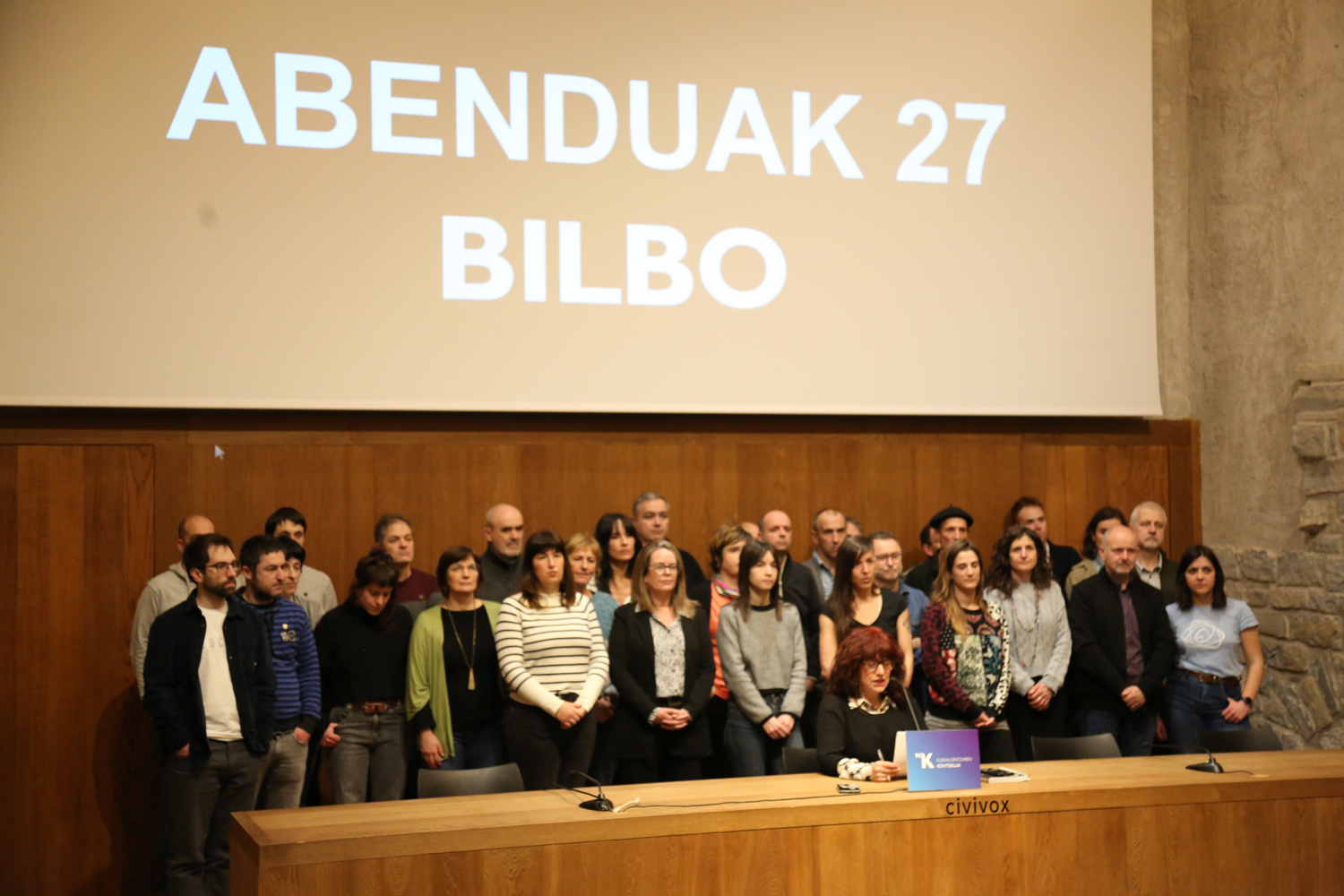"Without Euskera, I don't know where I would be now."
- He translated for the first time into Euskera a poem by the greatest writer Galego has: Méndez Ferrín. Finally, he has translated into Galician one of the greatest writers in Euskera: Joseba Sarrionandia Between these two strands, the third poet was used as links, like knots: Isaac Xubín.
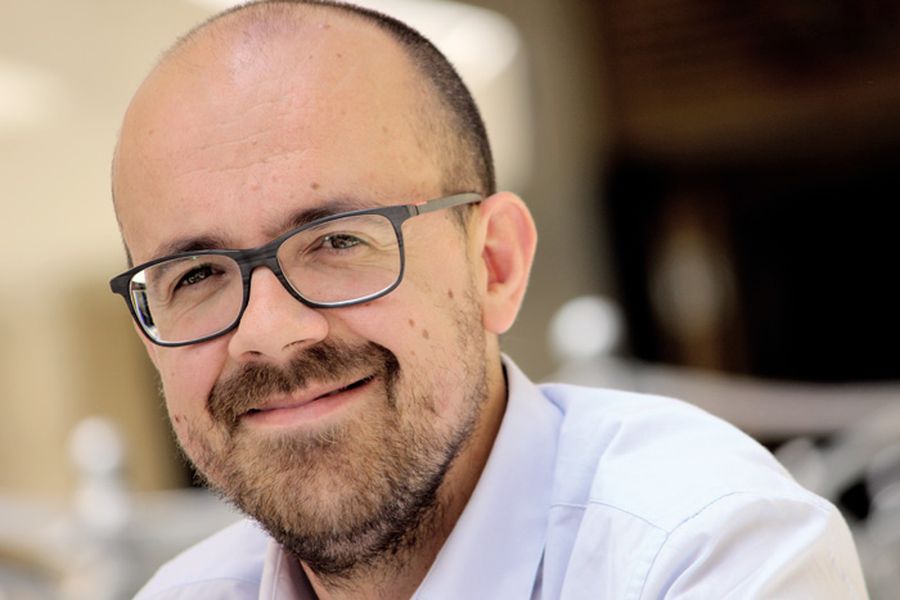
Idazle eta itzultzaile da. Idatziak ditu poemak eta narrazio laburrak, eta zenbait sari jasoa da. Filologia Galegoa ikasten ari zela heldu zen gurera euskaraz ikastera, eta loturari eusten dio harrezkero. Alén da fronteira, Sete poetas vascos emana du galegoz, eta itzuliak ditu Harkaitz Cano, Itxaro Borda, Kirmen Uribe… Iaz, Etxepare saria jaso zuen Joseba Sarrionandiaren Tempo de exilio itzulpenarekin. Gaur egun Irlandako Cork-en bizi da errugbi jokalari zaildua ere baden galego-euskaldun hau.
You came to Bilbao to learn Basque. Then you also lived in Vitoria.
I first curated the studies of Galician Philology and when I was about to finish I was promised that I had to do something else to complete my training. That's how I felt, and I did. I came to Euskal Herria over ten years ago.
People have been studying English Philology for years.
Yes, it is true, but the space of English is full. The Basque Country, on the other hand, does not. That's why I came. I spent four years in Bilbao, two years in Vitoria. I came to study in Euskera, nothing more than that, so the first thing I did was sign up for the Euskaltegi and start working as a waitress or pizza dealer. It was easier for me to come to Bilbao, because it was easier to surround my work. It is known that if I were to go to a small Basque people, I would learn more and better Euskera, but I would have had more work.
Did you stay in Bilbao and Vitoria?
Yeah, I couldn't. I came to learn Basque, and I was using it very soon, at least a little. In addition, there was television, literature, the press… and, on the other hand, there are places where they speak in Basque. So you only have to address them. What does anyone who wants to play tennis also have? You have to go to the place where you play tennis, not enter the court where you practice rhythmic gymnastics. Go there, get in the environment, adapt, meet people -- that's what you'll have to do. As for learning Basque, in my case, living in Bilbao was not an extraordinary difficulty to learn Basque. Much less when you're a novice, when you can't do a deep interview in Basque. Instead, in the bar you can ask for it in Basque. Well, you have a start. Then the newspaper and the television will come, and you will receive the pyramid.
You were at the faculty of philology in Vitoria.
I was doing a Romanesque philology in Galicia and wanted to know what non-Romanesque philology was. And I was lucky, because I was far from Euskal Herria in Vigo. In Romanesque philology, Latin predominates, and few questions have no answer in the Latin sphere. As far as Basque philosophy is concerned, the situation is quite the opposite. Euskera is an isolated language, has no kinship, and does not have many ancient texts showing the goitibeheitis of the history of the language. That's what took me from Bilbao to Vitoria, where is the Basque Philology. I enrolled in some subjects, but not with the intention of acquiring the title, but with the intention of knowing those who dedicate themselves to the history of the Basque Country at the academic level.
You had no previous link with the Basque Country.
No, not with the Basque Country, but with Bilbao, since the fathers and mothers of the father were immigrants. And there were many of them here, because in my father's house there were fourteen brothers and in my grandmother's about ten. So the father currently has about 50 small cousins. At the age of 6, the father and mother returned to Galicia, but despite this, Bilbao is already part of the family mythology. Bilbao would always leave chatting at home, for being a billiard or for being a family member who lived there. In a way, we were in the chapel of Bilbao.
But that's not why you came.
No, the Basque country brought me, but I was also in Galicia, always there Bilbao. When I arrived there, I was able to close some circles, especially those related to the family. Have I ever told you the story of Sagutxinho?
Sagutxinho?
Yes. My grandmother always called me sagutxinho. I thought it was the word of the Galician. That doesn't mean anything good from my philologist. Ha ha ha! Before I had to realize that I wasn't Galician, because only my grandmother was talking to her. But it was like this: sagutxinho, he gave me no other name, and even today he calls me sagutxinho. Now comes the golden key: the first day of the Euskaltegi, on Gardoniz Street, the professor, after the presentations of always – “how do you call yourself?”, “why do you want to learn Euskera?” – gave us pages in which some images with their names in Euskera appeared. One of those words caught my attention, because I knew her. The only word I knew was: "Ratoncito! At that time, my entire childhood was passed before my eyes.
Mouse, mouse. Her grandmother was arrogant.
Yes. Ha, ha… Anyway, I have a theory that the grandmother did not return to Galicia willingly. Maybe, even if he was to Galicia, he could only stand in Bilbao: call his niece like a grandmother here would, adding -inho. Don't believe it, I discovered it at the age of twenty-five, the first day of the Basque Country.
I don't imagine on top of the tur-tur bike, a pizzas dealer in Vitoria.
Well, that's what I did. Ajajajajajajajajajajajajajajajajajajajajajajajajajajajajajajajajajajajajajajajajajajajajajajajajajajajajajajajajajajajajajajajajajajajajajajajajajajajajajajajajajajajajajajajajajajajajajajajajajajajajajajajajajajajajajajajajajajajajajajajajajajajajajajajajajajajajajajajajajajajajajajajajajajajajajajajajajajajajajajajajajajajajajajajajajajajajajajajajajajajajajajajajajajajajajajajajajajajajajajajajajajajajajajajajajajajajajajajajajajajajajajajajajajajajajajajajajajajajajajajajajajajajajajajajajajajajajajajajajajajajajajajajajajajajajajajajajajajajajajajajajajajajajajajajajajajajajajajajajajaj At that time, on the other hand, it was quite simple – with driving licence and experience – to surround the work. I had done a job like in Pontevedra. They got me right away, a lot of people didn't want to work on that, especially in the cold of the winter. Whenever I went on vacation to Galicia, I left the job. When I came back, I was waiting there.
Poet distributing pizzas.
Nothing poetic, isn't it? Ja, ja…
Galego was a reader at the University of Cork, Ireland.
Without Euskera, I don't know where I would be now. Surely I wouldn’t dedicate myself to language, philology, or writing; I stopped writing… The day I decided to come to Euskal Herria to study in Basque – my mother says – the saint came down that day and touched you. And it's not a lie, because I have a lot of friends who have a much better academic record than I do, who don't work on language-related issues. I also saw it: eleven colleagues, in the queue of the unemployed, with the impossibility of getting a job. So I said to myself. “Enough of that! There is no solution!” And in fact, I came to Euskal Herria before the end of Galician Philology. And they always said the same thing to me. “Why don’t you end up before, because you have little left.”
You don't obey anyone.
No. I'd already spent the years I had to spend in college, I wouldn't give myself much more. As soon as I wanted, I had passed the last lessons I had to pass and I was enough. But that was waste time, while I could do something more enriching. Learn Basque, for example. So I did. I later got the title. Many of my friends, I said, started working differently. The curriculum produced through the Basque Country helped me to be a reader of Galicians at the University of Cork: the Galician-Euskera dictionary, the Basque classes taught at the University of Vigo, the translations… Without that curriculum, it would not have been possible in Ireland.
Galicia, Basque Country, Ireland… We just released you in Zarautz at the Literaturia festival.
Yes. Last year, at the Salvaterra do Minho poetry festival, I presented the Tempo de exilio de Sarrionandia, the Etxepare Prize last year, and there were a few poets from here. I was informed of the Zarautz festival and invited to come. I have come to a good degree. On the other hand, in Zarautz I met Ruper Ordorika, translator and publisher, as he awards both and also promotes the promotion of the award-winning book, in autumn Ruper and I will make a small tour of Galicia. It would not be bad if it were done here.
You have a two-way relationship.
Yes, here and there. In any case, right now, Galician publishers are dedicated to translations. Very good works, very well translated and excellent publications. Although the natives continue to sell, Méndez Ferrín, Manuel Rivas, Suso de Toro…
What is the state of language? Jobs in Galego too? I thought everyone was talking Galician.
It's not about where you are, it's about where you're going. The number of speakers isn't worth much, but to put the number in
a survey or an atlas. In fact, when the sociological report is drawn up, the important thing is to know where the language’s vector is going. And in the case of Galician, when 70 percent of speakers are older people, older than 65, this means that the vector is coming down. In the case of the Basque Country, for example, it is said that few speak, and it is possible, but the vector is growing. Moreover, the age pyramid of Basque speakers is more proportionate, and young people have more linguistic competence than the old ones. So? My parents only spoke of Galician, but I don't know if in life they saw any film made in Galicia, of Galician. Or if you've ever read a book in Galician. Well, to start with, I just bought two films in Basque: Flowers and Amama.
You don't have a bad chance.
The good recommendations of good friends, ha, ja… In Galicia we are starting on this road. And as for the return of Sarrionandia, only I should have been the translator. That is to say, before I do, someone should have seen the way of the Basque in Galicia. We are not far away, although it is not easy to go here and there either: how many buses and trains I have travelled from Bilbao to Vigo and from Vigo to Bilbao.
Isaac Xubín you are Isaac Fernández Fernández.
My mother was born in Xubín, across from La Coruña, in Oleiros. I spent my childhood outside Galicia, and every time I came back, we were in A Coruña or Xubín, in the house of my grandparents, or my uncles. My only identity reference was Xubín, a Coruña. At the age of 15-16, the father and grandmother were killed and her uncles sold the house of Xubin. In addition to losing that reference, at the time I won a poetry prize, and I decided Xubín.
It's part of your Xubín identity.
Yes. The father, born in Bilbao, was transferred from child to Coruña. I had that little trauma of being from a place without memories. When I was about to be born, my parents lived in the village of Espinosa de los Monteros in northern Burgos. My father did not want what had happened to him to happen to me, and they asked me for days of vacation at work and took me to Galicia: being born in Coruña was not a coincidence, but a completely conscious option. Similarly, when the second was born at home, her father asked for a holiday and a Coruña. Little chance in our births. We know where we are from.
“Euskaltegian filologiak ekarri ninduela euskarara esaten nuen, eta dudarik gabe, horrek nire alde jokatzen zuen, “ex profeso etorri da morroi hau euskara ikastera”. Izan ere, euskaltegian bazen jende multzo bat laneko premiak eraginda ikasten ari zena, eta haien diskurtsoa ez zen, bistan denez, nirea bezain enpatikoa irakasleentzat. Ni, Galiziatik Bilbora euskara ikastera etorria!”.
“Erraztasuna besterik ez nuen izan, hala Administrazioaren nola baliabideen aldetik. Era guztietako euskal gramatikak dituzu gaztelaniaz, badituzu bi orduko ikastaroak, bostekoak, barnetegiak… Hemen bizi bazinen, Administrazioak matrikularen zati ondradu bat ordaintzen zizun
–garai hartan, behintzat–,
eta badiotsut, erraztasuna
besterik ez zen”.
“Euskal Filologian, Henrike Knörren eskoletara joan nintzen, testu zaharrei buruz ematen zituen azalpenak aditzen; oso saio atseginak ziren. Interesgarriena, hala ere, hizkuntza palohispanikoen gainean Joakin Gorrotxategik gidatzen zuen ikasgaia zitzaidan, hau da, zein aztarna ditugun euskararen historiaren bidean, eta zein ondorio atera ditzakegun lekukotasun apur horietatik. Alderdi hau batere ez da ikasten filologia erromaniko batean: lusitanoa, iberoa…
Mundu berria ireki zitzaidan”.
“Euskal Filologian, Henrike Knörren eskoletara joan nintzen, testu zaharrei buruz ematen zituen azalpenak aditzen; oso saio atseginak ziren. Interesgarriena, hala ere, hizkuntza palohispanikoen gainean Joakin Gorrotxategik gidatzen zuen ikasgaia zitzaidan, hau da, zein aztarna ditugun euskararen historiaren bidean, eta zein ondorio atera ditzakegun lekukotasun apur horietatik. Alderdi hau batere ez da ikasten filologia erromaniko batean: lusitanoa, iberoa…
Mundu berria ireki zitzaidan”.
Aberri Eguna elkarrekin ospatzeko xedez sortu zen Euskal Herria Batera plataforma. Aurten, ikusgarri bat eskainiko dute apirilaren 11n, Manex Fuchs antzerkilariaren, Lorea Agirre idazlearen eta Martxel Rodriguez dantzariaren eskutik.
Gozamen aparta bezain deskribatzeko zaila dakar, norbaiten hitzak irakurri edo entzun ostean, zera pentsatzeak: “Horixe zen neu aurreko hartan azaltzen saiatu nintzena!”. Idazlea eta itzultzailea da María Reimóndez, eta galegoz aritzen da, hizkuntza... [+]
From linguistics or glotophobia and, of course, hatred against Basque, we have often seen our Basque become the dandruff of all sticks. Last of all, the president of Kutxabank, Anton Arriola, has been shaking our language and giving us galantas.The President of Kutxabank,
... [+]
Don't make a fuss, don't confront, don't victimize... and obey. As oppressed subjects, in this case as Basques, we talk, how many times have we had to listen to them? Ironically, two years ago, at the Euskalale Independentiston Meeting, Esne Arzallus said: "We have arrived here,... [+]
Euskal hizkuntzalaritza esperimentaleko katedra berria estreinatu dute Baionako fakultatean.
Bilbon eginiko aurkezpenean iragarri dute ekitaldia, euskarari "arnas berri bat emateko eta behar duen indarraldia gorpuzten hasteko" lehen urratsa izango dela nabarmenduta. Euskaltzale guztiei, baina, oro har, "justizia sozialean eta gizarte kohesioan aurre... [+]







